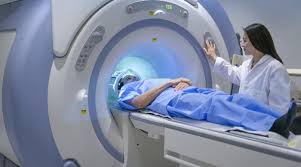
DIPLOMA IN CT SCAN TECHNICIAN (2 YEAR)
🎓 Diploma in CT Scan Technician – 2-Year Syllabus
📘 First Year: Foundational Knowledge & General Radiography
1. Human Anatomy & Physiology
- Introduction to human body structure
- Organ systems: skeletal, muscular, cardiovascular, respiratory, nervous, digestive, excretory, reproductive
- Terminology and body positions
- Cross-sectional anatomy basics (introduction)
2. Basic Physics and Radiological Physics
- Fundamentals of physics: electricity, magnetism, radiation
- X-ray generation: X-ray tube, beam quality and quantity
- Radiographic image formation
- Basics of radiation interaction with matter
3. General Radiography & Imaging Techniques
- Conventional X-ray machines and digital radiography
- Patient positioning for X-ray
- Use of cassettes, films, and CR/DR systems
- Common diagnostic procedures (chest, spine, limbs)
4. Radiation Protection & Safety
- Units of radiation measurement (Roentgen, Sievert, Gray)
- Principles of radiation protection (time, distance, shielding)
- Biological effects of radiation
- Use of PPE (lead apron, thyroid shield, dosimeter)
5. Patient Care and Communication
- Professional behavior and ethics
- Patient preparation and consent
- Monitoring patient during imaging
- Managing elderly, pediatric, and trauma patients
- First aid and basic emergency care
6. Practical Sessions / Hospital Posting
- Practice on X-ray machine
- Film processing (manual/digital)
- Positioning techniques
- Equipment handling and safety drills
📗 Second Year: Specialized CT Training
1. CT Scan Equipment and Technology
- CT scanner components: gantry, detector, console
- Spiral/Helical CT and Multi-Slice CT
- CT parameters: kVp, mAs, pitch, slice thickness
- Image reconstruction: axial, coronal, sagittal views
2. CT Imaging Procedures
- Brain CT (trauma, stroke, tumor)
- Chest CT (lung pathologies, contrast CT)
- Abdomen & Pelvis CT (liver, kidney, contrast phases)
- Spine CT (disc herniation, vertebral trauma)
- CT angiography basics
3. Cross-sectional Anatomy
- Head, neck, thorax, abdomen, pelvis, and spine
- Normal vs pathological appearances on CT
- Lesion localization and evaluation
4. Contrast Media and Injection Techniques
- Types of contrast (iodinated, oral)
- IV cannulation and injection protocols
- Contrast reactions and emergency management
- Patient monitoring during contrast studies
5. Image Quality & Quality Control
- Image resolution, contrast, noise
- Artifacts and troubleshooting
- CT machine maintenance and calibration
- PACS (Picture Archiving and Communication System)
6. Ethics, Record Keeping & Legal Aspects
- Patient confidentiality (HIPAA guidelines basics)
- Consent forms and documentation
- Legal responsibilities of CT technologists
- Medical ethics and professional conduct
7. Internship / Clinical Training
- Hands-on training in CT departments
- Supervised procedures
- Emergency protocols in imaging
- Logbook maintenance and case-based learning
- Final viva/project based on clinical experience

